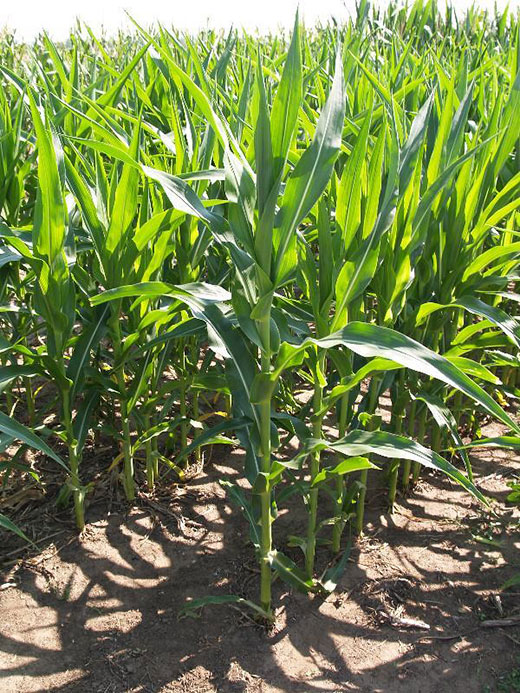
K-State agricultural engineers Ajay Sharda and Dan Flippo are testing an idea to automate processes that measure seed depth, spacing and geo-location in corn and soybean fields. | Download this photo.
K-State engineering faculty earn Concept of the Year award
Researchers continue sharpening idea to capture data on planting farm crops
Aug. 4, 2021
MANHATTAN, Kan. – A Kansas State University team of researchers in agricultural engineering has been recognized for an idea that will use robotic machines to collect data that can help farmers make better decisions when planting crops.
The American Society of Agricultural and Biological Engineers awarded its annual Rain Bird Engineering Concept of the Year award to K-State associate professors Ajay Sharda and Dan Flippo, who have led the project from development to filing a patent and integrating their idea into on-farm machinery.
The award is sponsored by Rain Bird International.
“In farming, data is a most precious commodity,” said Sharda, noting that current methods to collect research data on the effectiveness of machines to plant seeds relies heavily on manpower.
“Every year, our graduate students spend weeks in the field to measure seed depth by manually digging around emerged seeds to capture data on plant spacing,” Sharda said. “This is a difficult task to complete during the summer and difficult to capture on multiple sites due to the lack of sufficient manpower. So, it puts limitations on the amount of data that can be captured.”
The K-State researchers have proposed automating this process by developing a prototype for seed location and sensing (SLS), which they tested in field conditions. The system they are developing incorporates a color camera, laser line scanner and a global navigation satellite systems (GNSS) unit to collect real-time data.
So far, their research has gone well, according to Sharda.
“The system provided the performance we desired and very accurate data during preliminary tests,” he said. “Our SLS system thus became the first product in industry and academia to provide real-time seeding depth, spacing and geo-location information.”
Their work is still early and because the patent is not yet final, Sharda can’t get too far into the details. But the researchers have already built a couple improvements to their original work, and are expecting the next version in time for the 2022 planting season.
“One of the major equipment manufacturers has leased this technology for future development…and has integrated it with a 12 row planter to help us verify the technology in field conditions,” Sharda said.
K-State’s work is being conducted in its recently formed laboratory -- called Fusing Automation and Robotics in Ag Machine Systems (FARMS) – that is located in the College of Engineering. Sharda credited doctoral student Sylvester Badua, “who did the majority of the work to develop the SLS system.”
ASABE, an educational and scientific organization founded in 1907, recognizes one project with its Concept of the Year award to honor unique contributions to developing or advancing a new engineering concept. The K-State team was named this year’s winner during ASABE’s summer meeting.

